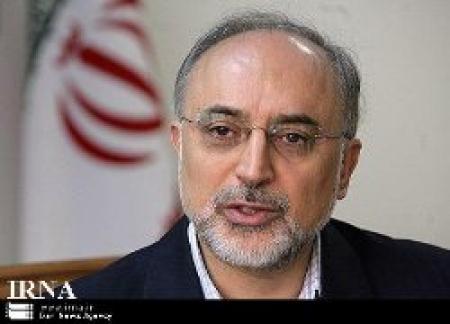ID :
191710
Wed, 06/29/2011 - 08:54
Auther :
Shortlink :
https://www.oananews.org//node/191710
The shortlink copeid
FM: Sardasht, Halabche incidents mark dark history for pro-Saddam states

Tehran, June 29, IRNA – On the anniversary of chemical bombardment of cities of Sardasht and Halabche by Saddam regime and commemoration of its victims, Foreign Minister Ali Akbar Salehi issued a message.
According to a report by Foreign Ministry's Media Department on Tuesday afternoon, Salehi in his message said that those governments that helped Saddam were hopeful that his regime would quell Iran's new born Islamic revolution and they equipped him by the most modern weapons as well as chemical arsenals and they closed their eyes to his crimes, so they made the darkest pages of human civilization history.
He continued that different international humanitarian organizations, either governmental or non-governmental, only watched Saddam crimes and non of them, especially the UN Security Council, in spite of official reports of the UN inspectors concerning vast use of chemical weapons by Saddam regime, never issued a resolution against Saddam Hossein.
The US government, which is a member of the Organization for the Prohibition of Chemical Weapons ( OPCW) for many years, still has the largest amount of arsenals of chemical weapons, and although upon related convention the US is obliged to destroy its arsenals until April 29, 2012, but it has not made enough efforts to fulfill its obligation so far and has never put pressures on the Zionist regime to be a member of the convention, so world is still facing seriously with a threat of chemical weapons.
Salehi called Iran 'major victim of chemical weapons' and an active member of the OPCW and added that Iran, accompanying other member states of the Organization, will try for full elimination of all chemical arsenals in the world.
He condoled with families of the victims and emphasized that Islamic Republic of Iran will seriously follow legally to obtain victims' rights.
Sardasht is a city west of Iran, close to Iraqi border and Halabche is an Iraqi town, close to Iran border, both of them being bombarded by chemical weapons by Saddam Hossein regime during eight years of war between Iraq and Iran./end
According to a report by Foreign Ministry's Media Department on Tuesday afternoon, Salehi in his message said that those governments that helped Saddam were hopeful that his regime would quell Iran's new born Islamic revolution and they equipped him by the most modern weapons as well as chemical arsenals and they closed their eyes to his crimes, so they made the darkest pages of human civilization history.
He continued that different international humanitarian organizations, either governmental or non-governmental, only watched Saddam crimes and non of them, especially the UN Security Council, in spite of official reports of the UN inspectors concerning vast use of chemical weapons by Saddam regime, never issued a resolution against Saddam Hossein.
The US government, which is a member of the Organization for the Prohibition of Chemical Weapons ( OPCW) for many years, still has the largest amount of arsenals of chemical weapons, and although upon related convention the US is obliged to destroy its arsenals until April 29, 2012, but it has not made enough efforts to fulfill its obligation so far and has never put pressures on the Zionist regime to be a member of the convention, so world is still facing seriously with a threat of chemical weapons.
Salehi called Iran 'major victim of chemical weapons' and an active member of the OPCW and added that Iran, accompanying other member states of the Organization, will try for full elimination of all chemical arsenals in the world.
He condoled with families of the victims and emphasized that Islamic Republic of Iran will seriously follow legally to obtain victims' rights.
Sardasht is a city west of Iran, close to Iraqi border and Halabche is an Iraqi town, close to Iran border, both of them being bombarded by chemical weapons by Saddam Hossein regime during eight years of war between Iraq and Iran./end





